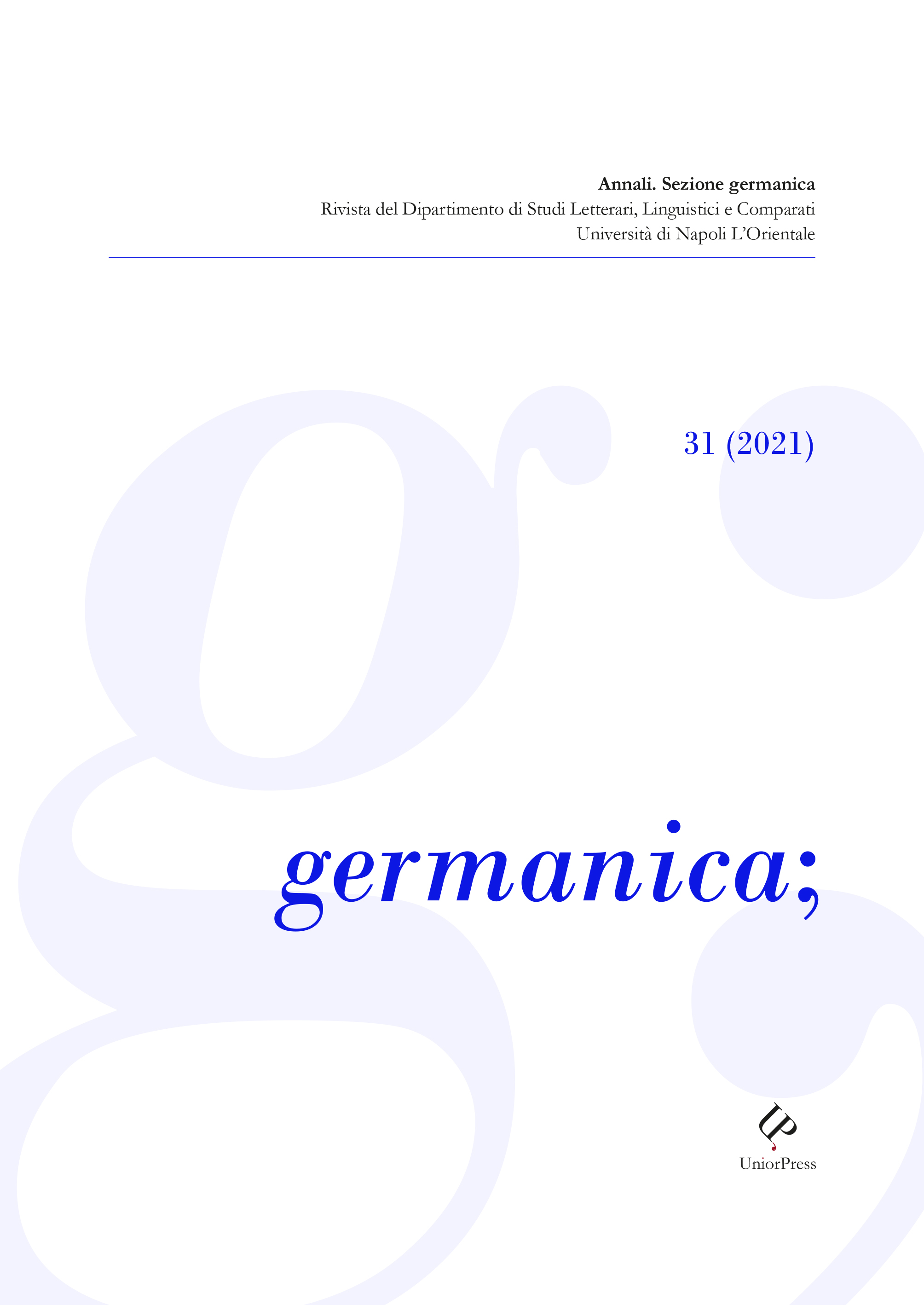A magic potion in present-day Sweden
Elixir by Alejandro Leiva Wenger
Abstract
-
Pubblicato
2022-06-07
Come citare
GendolavignaL. (2022) A magic potion in present-day Sweden, ANNALI. SEZIONE GERMANICA. Rivista del Dipartimento di Studi Letterari, Linguistici e Comparati dell’Università degli studi di Napoli L’Orientale, (31), pagg. 125-145. doi: 10.6093/germanica.v0i31.9212.
Fascicolo
Sezione
Articoli
Gli autori che pubblicano su questa rivista accettano le seguenti condizioni:
- Gli autori mantengono i diritti sulla loro opera e cedono alla rivista il diritto di prima pubblicazione dell'opera, contemporaneamente licenziata sotto una Licenza Creative Commons che permette ad altri di condividere l'opera indicando la paternità intellettuale e la prima pubblicazione su questa rivista.
- Gli autori possono aderire ad altri accordi di licenza non esclusiva per la distribuzione della versione dell'opera pubblicata (es. depositarla in un archivio istituzionale o pubblicarla in una monografia), a patto di indicare che la prima pubblicazione è avvenuta su questa rivista.
- Gli autori possono diffondere la loro opera online (es. in repository istituzionali o nel loro sito web) prima e durante il processo di submission, poiché può portare a scambi produttivi e aumentare le citazioni dell'opera pubblicata (Vedi The Effect of Open Access).

